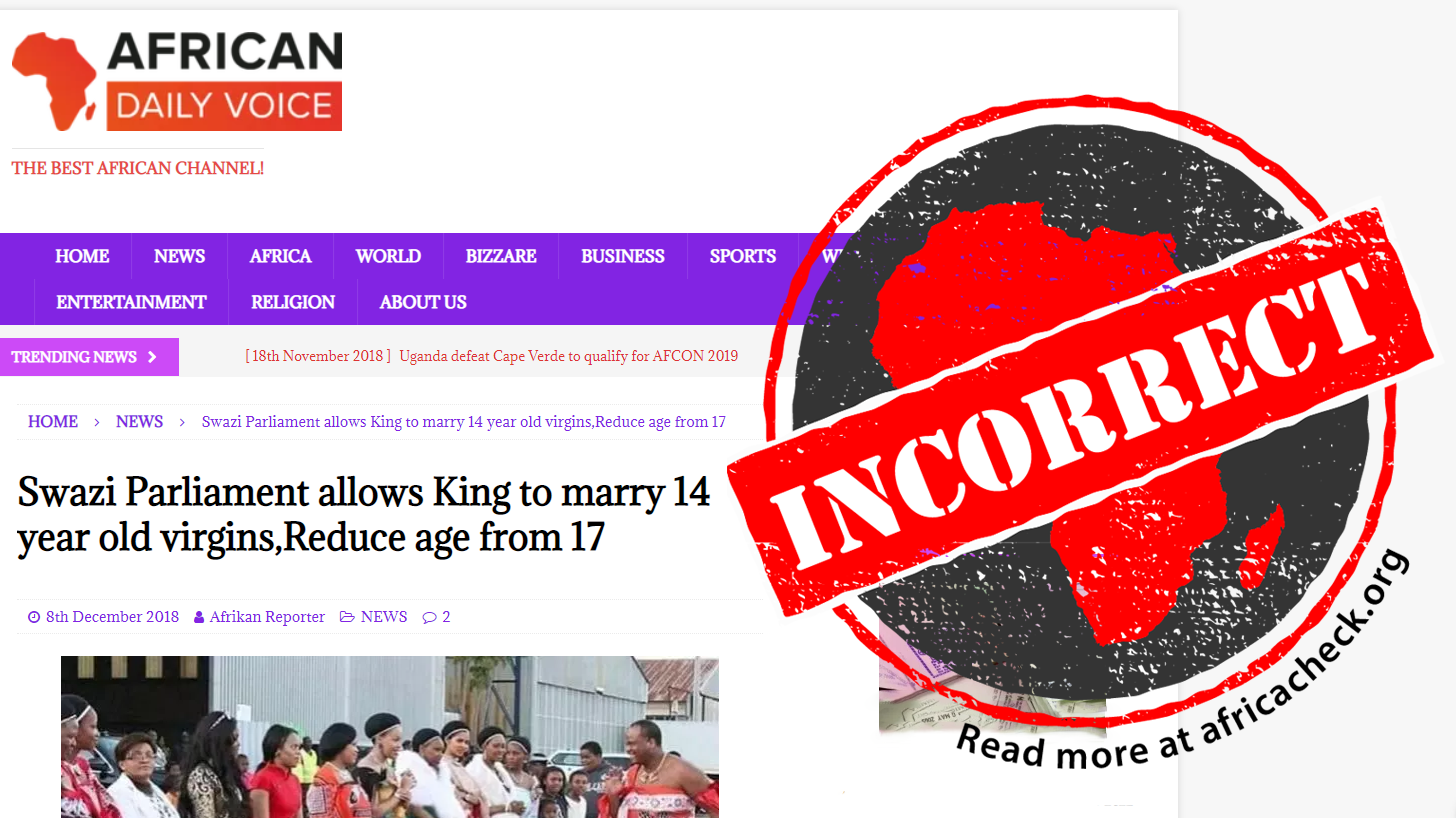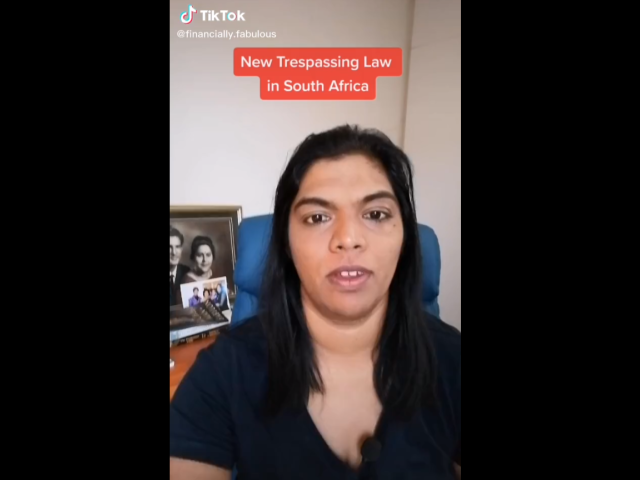Featuring a photo of King Mswati III of eSwatini (formerly Swaziland) “inspecting” his many wives, a website masquerading as the genuine African Daily Voice reported that the country had passed a new law allowing the king to marry “14-year-old virgins”.
The publication said this decision was taken by eSwatini’s parliament in December 2018.
The story was also published on Enthuse Africa and Face of Malawi. After a South African DJ tweeted about it, several readers asked us to check if the claim was true.
“There is no such law that has been passed,” eSwatini government spokesperson Percy Simelane told Africa Check. “Parliament was dissolved before elections around June 2018. We have just emerged from elections and parliament will be re-opened in February 2019. That is when we can discuss or pass laws.”
There also hasn’t been any discussion about reducing the age of marriage to 14, Simelane said.
Unicef also wasn’t aware of any new law allowing the king to marry 14-year-olds, Nadia Samie-Jacobs, a spokesperson for the UN children’s agency, told Africa Check.
The legal age of marriage in eSwatini is 18, Simelane said. But UN news agency Irin has reported on local groups’ worries about loopholes in customary marriage laws. - Lloyd Hazvineyi (12/12/2018)
Further reading:
https://africacheck.org/fbcheck/hoax-alert-man-selling-human-meat-in-nairobi-butchery-story-is-false/
The publication said this decision was taken by eSwatini’s parliament in December 2018.
The story was also published on Enthuse Africa and Face of Malawi. After a South African DJ tweeted about it, several readers asked us to check if the claim was true.

‘No such law has been passed’
“There is no such law that has been passed,” eSwatini government spokesperson Percy Simelane told Africa Check. “Parliament was dissolved before elections around June 2018. We have just emerged from elections and parliament will be re-opened in February 2019. That is when we can discuss or pass laws.”
There also hasn’t been any discussion about reducing the age of marriage to 14, Simelane said.
Unicef also wasn’t aware of any new law allowing the king to marry 14-year-olds, Nadia Samie-Jacobs, a spokesperson for the UN children’s agency, told Africa Check.
The legal age of marriage in eSwatini is 18, Simelane said. But UN news agency Irin has reported on local groups’ worries about loopholes in customary marriage laws. - Lloyd Hazvineyi (12/12/2018)
| UPDATE: This fact-check has been updated to clearly distinguish between the genuine African Daily Voice website and www.african-daily.com, which published this false story. The imposter website is illegally using African Daily Voice's logo, as its director explains here. |
Further reading:
https://africacheck.org/fbcheck/hoax-alert-man-selling-human-meat-in-nairobi-butchery-story-is-false/
Republish our content for free
For publishers: what to do if your post is rated false
A fact-checker has rated your Facebook or Instagram post as “false”, “altered”, “partly false” or “missing context”. This could have serious consequences. What do you do?
Click on our guide for the steps you should follow.
Publishers guideAfrica Check teams up with Facebook
Africa Check is a partner in Meta's third-party fact-checking programme to help stop the spread of false information on social media.
The content we rate as “false” will be downgraded on Facebook and Instagram. This means fewer people will see it.
You can also help identify false information on Facebook. This guide explains how.



Add new comment